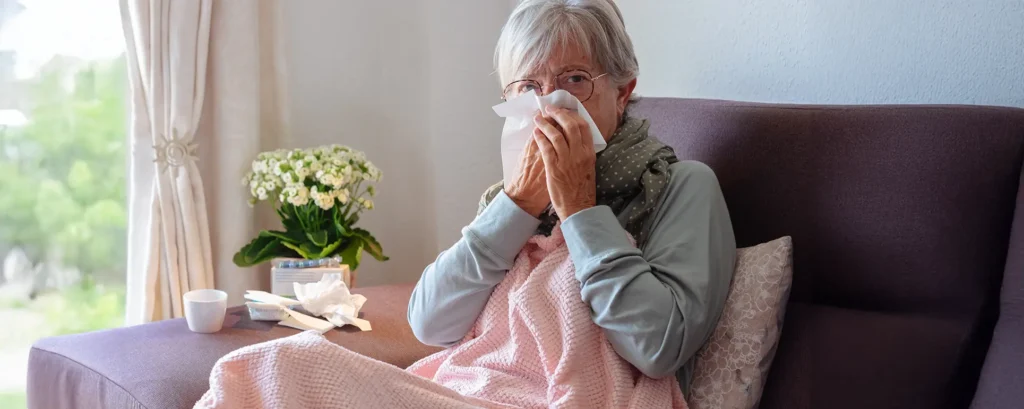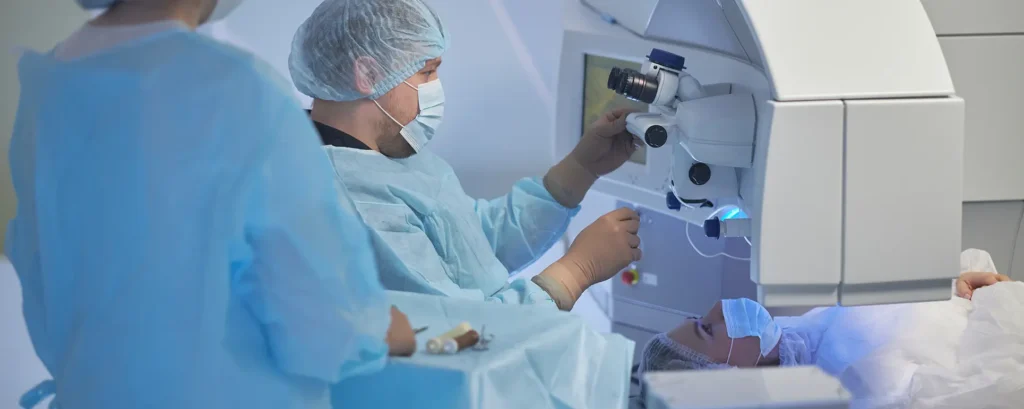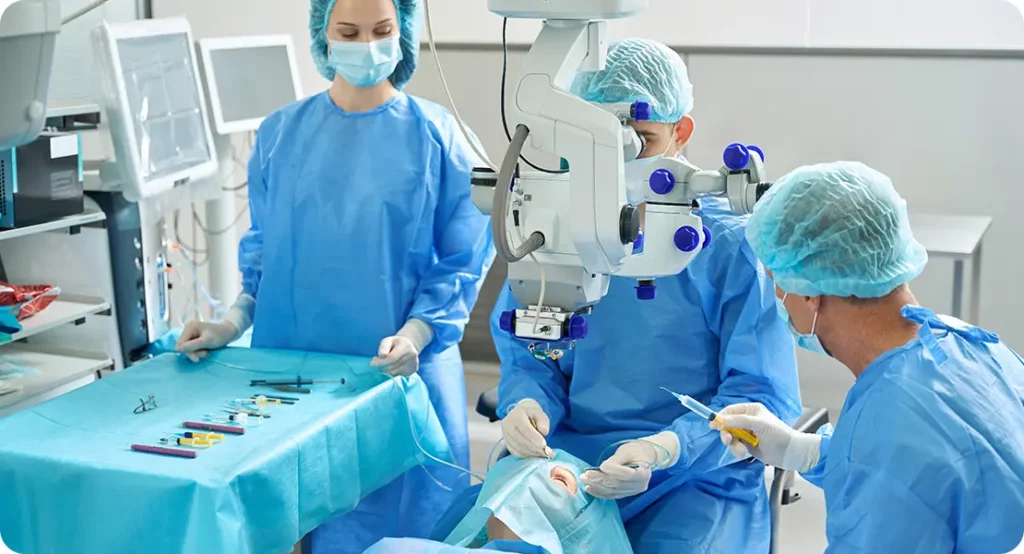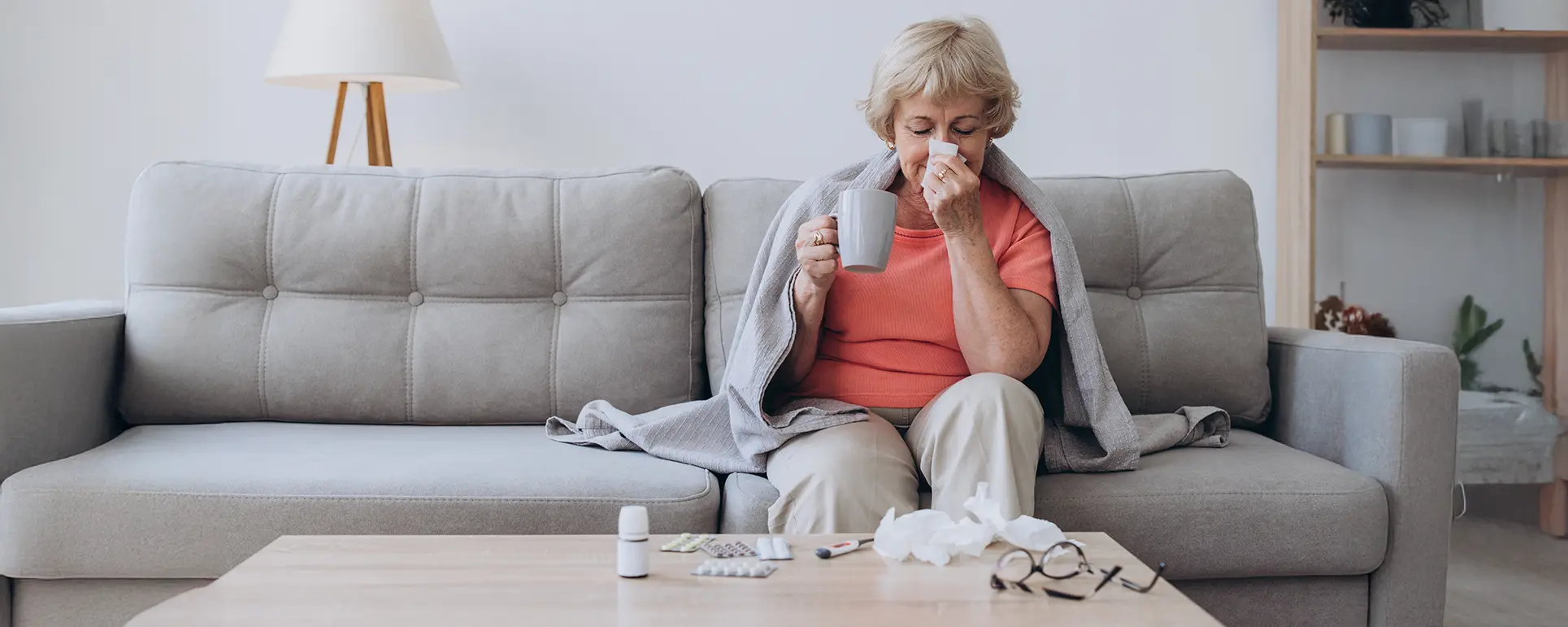If you’ve been counting down the days to your cataract surgery, the last thing you want is to wake up with a sore throat, blocked nose, or even a mild fever. Understandably, many patients find themselves worrying: Is it still safe to go ahead with the procedure if I’ve come down with a cold or flu? The answer, as you might expect, depends on a number of factors — including the severity of your symptoms, the anaesthetic being used, and your overall health.
This guide is here to help you make sense of what to do if you’re feeling unwell around the time of your cataract surgery. We’ll walk you through why it matters, what your surgeon might advise, and how to make the safest decision for your recovery.
Why Illness Matters Before Cataract Surgery
Even though cataract surgery is one of the safest and most commonly performed operations worldwide, it still places some physiological stress on the body. When you’re already unwell — especially with an infection like the flu — your immune system is already working overtime. That extra load can potentially complicate the surgical process and delay your healing.
One of the biggest concerns is the risk of airway or breathing issues, particularly if your cold has led to significant nasal congestion or chest symptoms. During cataract surgery, you’ll most likely be lying flat, often under local anaesthetic, but occasionally with mild sedation. Breathing clearly and being able to lie still and relaxed is key. If you’re coughing or struggling to breathe, it might make the experience uncomfortable or even unsafe.
Types of Symptoms That Could Affect Your Surgery

Let’s break it down. Here are the types of symptoms that matter — and why:
- Nasal Congestion and Sinus Pressure
A blocked nose may not seem like a big deal, but during surgery, it can make it hard to breathe comfortably through your nose when you’re lying flat. If you’re someone who feels claustrophobic or anxious already, this can be distressing and make it harder to remain calm and still during the procedure. - Coughing or Chest Tightness
A persistent cough, especially if it’s deep or productive, can pose a real challenge. If you’re coughing every few minutes, it’s difficult for the surgical team to maintain the precision needed during delicate eye surgery. Uncontrolled coughing may also increase the risk of complications during the operation. - Fever and Flu-like Symptoms
If you’re experiencing fever, chills, body aches, or general malaise, your body is clearly fighting off a virus. Under these conditions, it’s generally advisable to delay surgery. A fever may signal a systemic infection, which can not only affect your healing but also make you more vulnerable to complications. - Sore Throat or Laryngitis
A mild sore throat might not necessarily prevent surgery, but it’s something you should mention. If you’re unable to speak comfortably or you’re struggling to swallow, this could indicate more serious involvement of your upper airway or a viral infection that’s likely to worsen. - Fatigue and Poor Appetite
Sometimes, it’s not one single symptom but a general sense of being “run down” that makes surgery unwise. If you’re not eating, sleeping, or hydrating well, your recovery will be slower, and your immune defences could be compromised.
When Is It Safe to Proceed?
Not all colds are created equal. A very mild upper respiratory infection — say, a runny nose with no fever or chest symptoms — may not be a reason to cancel. If you’re otherwise feeling okay, and your breathing is comfortable, your surgeon may give you the green light to proceed.
In many cases, cataract surgery is performed under local anaesthetic with no sedation. That means you won’t be put to sleep, and your airway won’t be manipulated — a big plus when you’ve got a mild cold. However, if any sedation is being used, especially in patients who are older or have respiratory conditions, the risks are higher when you’re unwell.
Ultimately, it comes down to your symptoms, your medical history, and the surgeon’s judgement. Be honest about how you feel — even if it means postponing something you’ve been waiting for.
When to Postpone: Surgeon Guidelines
Here are some scenarios in which surgeons often recommend delaying cataract surgery:
- You have a fever over 38°C
- You’re coughing frequently or have chest tightness
- You’ve recently tested positive for influenza, COVID-19, or another viral illness
- You feel too weak or dizzy to sit or lie still for 30–45 minutes
- You’re taking new medications such as antibiotics or antivirals that may interact with surgical protocols
In such cases, the risks outweigh the benefits of going ahead with the procedure. It’s better to fully recover and return for surgery when your body is better prepared.
Could Surgery Make You Feel Worse?

You might be wondering: If I go ahead while mildly unwell, will it make me feel worse afterward? The answer depends.
Cataract surgery itself is unlikely to worsen a cold or flu, but the stress on your system might delay your recovery from the illness. In rare cases, a viral infection can affect the tear film or lead to conjunctivitis, which could complicate the immediate post-op period. You’re also more likely to experience fatigue or slower wound healing if your immune system is already compromised.
The Infection Control Angle
There’s another important layer to all of this — protecting others. If you have a potentially contagious illness, going into a healthcare setting like a day surgery unit may put staff and other vulnerable patients at risk.
Surgeons, nurses, and other patients (many of whom may be elderly or immunocompromised) could suffer serious consequences from exposure to viruses like influenza or COVID-19. That’s why many surgical centres now have strict policies in place — if you’re showing any signs of a respiratory illness, you may be asked to reschedule out of an abundance of caution.
What to Do If You Wake Up Sick on Surgery Day
If you wake up on the morning of your cataract surgery feeling unwell, don’t panic. Here’s what to do:
- Call the Clinic Immediately
Don’t simply turn up and hope for the best. Let your clinic or surgeon know you’re feeling ill. They’ll advise you on whether to come in for an assessment or to reschedule. - Be Honest About Your Symptoms
Don’t downplay how you feel. Even if you desperately want the surgery done, it’s safer to be upfront. The surgical team will appreciate your transparency. - Don’t Self-Medicate to “Push Through”
Avoid taking medications to mask symptoms just so you can go ahead. Decongestants, fever reducers, or sedatives can complicate your pre-surgical medication plan or interfere with your body’s response. - Ask About the Rescheduling Process
Most clinics are well-practised in handling reschedules due to illness. You won’t be penalised for being sick — in fact, you’ll be doing the responsible thing.
How Long Should You Wait Before Rescheduling?
If your surgery is postponed due to illness, it’s natural to wonder when you can rebook. A typical recommendation is to wait at least 7–10 days after cold or flu symptoms have resolved — particularly if you had fever or chest involvement. You should feel back to your normal self, and ideally have been fever-free for at least 24–48 hours without medication.
In some cases, your GP or surgeon may ask you to come in for a quick health check before a new date is set. This is especially true if you’re over 75, immunocompromised, or have underlying conditions like asthma or heart disease.
What If Your Surgery Is Urgent?
Cataract surgery is rarely an emergency. However, in very specific cases — for example, if your vision has deteriorated suddenly or you’re at risk of complications like phacomorphic glaucoma — your surgeon may still consider going ahead despite mild illness, with extra precautions in place.
These situations are rare, but they do highlight that there isn’t a one-size-fits-all rule. You should never assume it’s okay or not okay based on someone else’s experience. Always consult the team that knows your specific case.
Why Delaying Isn’t Always a Bad Thing

It can be disappointing to delay surgery — especially if you’ve been struggling with blurred vision or glare for months. But a short delay is much better than risking a more difficult recovery or a suboptimal outcome.
If you’re not well, you won’t be able to relax during the procedure, and that can increase anxiety, movement, and overall discomfort. Postponing gives your body a better chance to heal properly, reduces infection risk, and allows for a more positive overall experience.
FAQs
- Can I still have cataract surgery with a mild cold?
Yes, it may still be possible to proceed with cataract surgery if your cold symptoms are very mild — such as a slightly runny nose or minor nasal congestion — and you’re otherwise feeling well. However, this decision must always be made in consultation with your surgical team. Even mild symptoms can feel much worse when lying flat under bright lights, and if you’re prone to anxiety, a stuffy nose can add to discomfort. The surgeon will assess your breathing, general health, and anaesthesia requirements before deciding whether it’s safe to proceed. - Will I be penalised for cancelling due to illness?
No, you won’t typically be penalised if you need to cancel your cataract surgery because you’re ill — especially if you provide as much notice as possible. Reputable clinics understand that patients can become unwell at the last minute and will usually accommodate a reschedule without financial or booking penalties. In fact, notifying them early helps them manage the surgery list better and protects other patients and staff from potential exposure to infectious illnesses like flu or COVID-19. - How soon after being sick can I rebook my cataract surgery?
Most surgeons recommend waiting until at least 7–10 days after your cold or flu symptoms have completely resolved before rescheduling cataract surgery. You should be fever-free for at least 48 hours without using medication, and feel back to your usual energy levels. If your illness was particularly severe — such as a chest infection or COVID-19 — you may also need medical clearance from your GP or a repeat pre-assessment before a new surgery date can be confirmed. - What if I develop symptoms after being pre-assessed?
If you’ve already had your pre-assessment but develop symptoms before the day of surgery, it’s essential to contact your clinic as soon as possible. The pre-assessment only captures your health status at that specific time and does not account for new infections. Your surgical team may need to reassess your fitness for surgery or advise postponing to avoid unnecessary risk. Being proactive ensures everyone’s safety and helps you avoid complications during recovery. - Can having a cold delay my healing after cataract surgery?
Yes, having a cold — especially one accompanied by fever or fatigue — can slow down your body’s ability to heal efficiently after surgery. When your immune system is already preoccupied with fighting off a virus, it has fewer resources to support wound healing and tissue recovery in the eye. You may also be less likely to rest properly or follow post-op care instructions if you’re not feeling your best, which can increase the risk of complications such as inflammation or dry eye. - What if I only have a sore throat but no other symptoms?
A mild sore throat on its own doesn’t always mean you need to postpone surgery, but it’s still worth mentioning to your surgical team. It could be the early sign of a more significant viral infection or just irritation from dry air or allergies. Your surgeon will evaluate whether there are any risks to your airway or signs of broader illness. If your sore throat is severe, painful when swallowing, or accompanied by fever, they may recommend delaying the procedure for your safety. - Is it dangerous to be sedated if I have the flu?
Yes, being sedated when you have flu symptoms — particularly respiratory ones — can pose a risk to your breathing and overall stability during the procedure. Sedation affects your respiratory system, and when combined with flu-related congestion, coughing, or fatigue, it can increase the risk of complications such as low oxygen levels. This is why most cataract surgeons prefer to wait until a patient has fully recovered before proceeding, especially if sedation is required for comfort or anxiety control. - Can I wear a face mask during surgery if I’m slightly sick?
No, patients are not allowed to wear face masks during cataract surgery. The surgeon needs unobstructed access to your face and eye, and having a mask on could interfere with positioning, sterility, and communication during the procedure. If you’re even mildly contagious, it’s best to postpone surgery to avoid putting the surgical team and other patients at risk. Clinics usually have clear policies about infection control, and symptoms of illness may mean automatic rescheduling. - Will I lose my place on the surgery list if I cancel?
Not usually. Most clinics are understanding when illness arises and will try to rebook your surgery as soon as you’re well again. While there may be a short wait for a new date, your spot on the waiting list is typically preserved or prioritised if the delay was for medical safety. Some centres even keep urgent slots available for patients whose procedures had to be postponed for unavoidable reasons, so don’t be afraid to ask about rebooking options. - Should I do anything special to avoid getting sick before surgery?
Yes — in the weeks leading up to surgery, it’s wise to take extra care of your health. This includes getting plenty of rest, staying hydrated, eating well, and avoiding crowded places, especially during cold and flu season. Handwashing is one of the most effective ways to reduce the risk of catching viruses. You may also want to avoid close contact with friends or family who are unwell. Some people choose to wear a mask in public during the final few days before surgery as an added precaution.
Final Thoughts: Listen to Your Body and Your Surgeon
If you’ve developed cold or flu symptoms before cataract surgery, don’t ignore them. Yes, the procedure is short, and yes, it’s done under local anaesthetic — but it’s still surgery. Your body deserves to be in the best shape possible to undergo it.
Speak to your surgical team, be transparent about your symptoms, and don’t be afraid to reschedule. At London Cataract Centre, we always prioritise your safety and wellbeing over sticking rigidly to dates. You’ll receive compassionate, expert advice — and we’ll help you get your surgery rescheduled as quickly and safely as possible once you’re feeling better.

